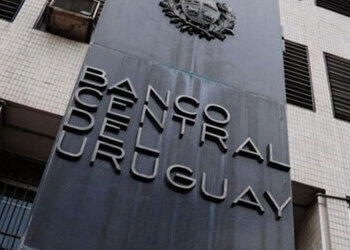Money laundering cases tied to drug trafficking in Uruguay have almost doubled in the past five years, according to a new government report, raising concerns that criminal organizations are taking advantage of lax regulations.
Uruguay’s National Secretary Against Money Laundering and Terrorism Financing (Secretaria Nacional para la Lucha contra el Lavado de Activos y el Financiamiento del Terrorismo – SENACLAFT) released statistics on September 1 showing a consistent annual rise in investigations into cases of money laundering connected to drug trafficking, which nearly doubled from 1,597 in 2018 to 3,021 in 2022.
The report drew on data from several state institutions, including the Central Bank of Uruguay, and focused on five areas: financial intelligence, international cooperation, preventative systems and national cooperation, and investigations and convictions.
Experts have warned of Uruguay’s susceptibility to financial crimes for years. A recent analysis of the country’s anti-money laundering capabilities by financial consultant Alejandro Aparicio Montesdeoca for SENACLAFT found that Uruguay has invested little in preventing, detecting, and prosecuting financial crimes.
Montesdeoca called this lack of resources the “common denominator” that has opened the door to laundering drug trafficking profits through corporate structures and buying property.
SEE ALSO: International Money Laundering Schemes Latest to Fall Victim to Coronavirus
Uruguay’s role in international money laundering is most clearly seen in the Uruguayan beach town of Punta del Este, which was connected to laundering by Los Cuinis, who ran the finances of Jalisco Cartel New Generation (Cartel Jalisco Nueva Generación – CJNG). Uruguayans linked to massive international shipments of cocaine, such as Gastón Murialdo and Martín Mutio, also laundered millions in profits through Uruguay’s financial system.
Legal Loopholes
Despite several years of rising suspicious financial operations, the Uruguayan government passed a law in 2020 that increased the limits on cash payments from $4,000 to $100,000 in the name of increasing financial freedom.
Critics view the 2020 law as a step backwards in the fight against money laundering, saying that allowing such large purchases helps laundering go unnoticed.
“Someone can show up with $100,000 and no one has to ask questions. With that, you can buy more than a car. You can buy a business,” said Nicolás Centurión, an Uruguay crime observer and analyst at the Latin American Center for Strategic Analysis (Centro Latinoamericano de Análisis Estratégico – CLAE).
Few Enforcement Resources
Uruguay’s lax regulations are compounded by a lack of resources for detecting and prosecuting these abuses of the system. A recent government analysis found that Uruguay has far fewer personnel focused on money laundering than its neighbors.
“In Uruguay, there are only 12 people investigating financial operations and strategies, plus some supervisors in a few sectors. In the rest of the region, there are at least 50, 60, 70 people,” said Montesdeoca.
SEE ALSO: Uruguay’s Institutions Struggle to Fight Back Against Increased Criminal Threats
Change is possible, however. Montesdeoca pointed to Paraguay as an example. Although the country struggles with corruption and a large informal economy, it invested significant resources towards investigating money laundering following an investigation by the Latin America Anti-Money Laundering Group (Grupo de Acción Financiera de Latinoamérica – GAFILAT). In the years since, Paraguay has seen a major increase in seizures and convictions related to the crime.
Lack of Expertise
Unlike other countries such as Brazil and Paraguay, Uruguay does not have a police unit dedicated to financial crimes, and the existing investigative units in the private and public sectors do not sufficiently coordinate or cooperate with each other, Montesdeoca told InSight Crime.
Uruguay is not widely associated with criminal activity. As a result, Centurión said, “There are fewer and fewer controls against Latin American and international organized crime groups that keep advancing.”
And by neglecting investigations into money laundering, Uruguay is likely under-detecting the crime, which reinforces the notion that it is not a major issue.
“There needs to be a change in how the problem is viewed,” said Montesdeoca. “You need to assume it is an important problem and adopt methods beyond just laws and regulations.”
Uruguay has already taken its first steps. In addition to SENACLAFT funding Montesdeoca’s evaluation, the country created a prosecutor’s office dedicated to money laundering in early 2023. And now Uruguay’s legislative branch is discussing changing the 2020 law that raised the limit for cash payments.

